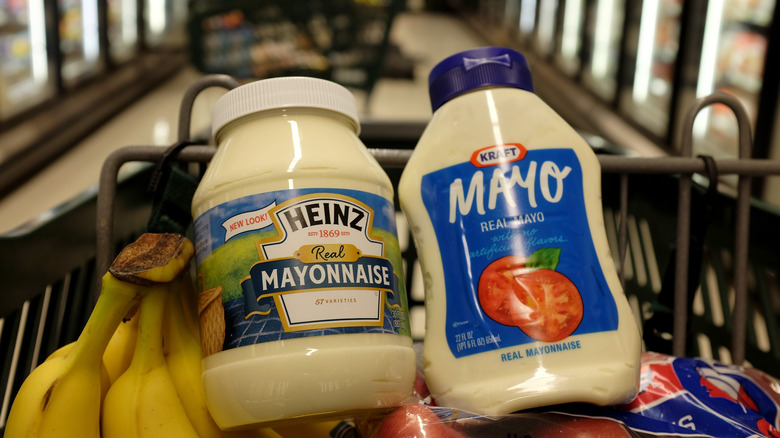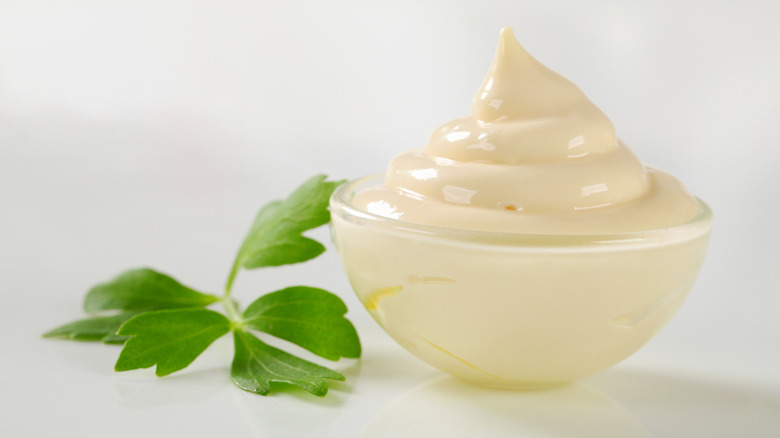How Long Is A Jar Of Mayo Good For After Opening It?
Before it's opened, a jar of mayonnaise has a pretty decent shelf life. It can stay at room temperature for about three or four months past the printed best-by date. That time doesn't reduce too much after you open your mayo. As long as you keep it in the fridge, it can still last for up to three months after the date on the jar.
Of course, this applies to shop-bought mayonnaise, which contains life-extending acid and preservatives. These ingredients kill bacteria during processing, which greatly improves shelf life. For the homemade mayo aficionados, it's not quite as simple. Because it's usually made with raw eggs, homemade mayonnaise should be refrigerated immediately and eaten within four days. Take extra care if you have used unpasteurized eggs, as they're susceptible to salmonella and as such are not recommended by the USDA.
Regardless of whether your mayo is processed or homemade, the fridge is king. Keeping your mayo cold and out of direct sunlight greatly slows the natural deterioration process, since bacteria don't flourish in cold temperatures. You may be tempted by the more extreme option of the freezer, but it's not advisable in this case. While it's possible to freeze mayonnaise in the same way that it's possible to put your phone in a blender, you're not likely to be pleased with the end product. If frozen, the emulsified mix that constitutes mayonnaise separates. When you remove your mayo from the freezer, you'll likely find curdled gunge with a layer of oil floating on top.
How to tell if mayo has gone bad
If you'd rather be safe than sorry, or if you've completely forgotten how long you've had that one jar lingering in your fridge, there are ways to tell if your mayo has gone bad. First, take a good look at it. If it's developed mold there's no saving it — toss it immediately. Discoloration or an acidic smell is a strong indicator that your mayo has gone rancid, which is a good sign it's time to get a new jar. The final test is the taste test: If your mayo has a vinegary or sour tang to it, it's hardly going to taste good spread over a sub.
Eating store-bought mayonnaise that has expired is unpleasant, but not necessarily dangerous. Research published in the Journal of Food Protection has found that the high acid content in processed mayo inhibits microbial growth, making it less likely to cause foodborne illness.
The same cannot be said for homemade mayonnaise, which is more vulnerable to harmful bacteria. It's typical to add vinegar or lemon juice to both homemade and shop-bought mayo, both for taste and because their acidic content can help combat microbial growth. However, homemade versions don't really match up to industrial processing equipment in that respect. Don't forget about the eggs in homemade mayo, either. Rotten eggs increase the risk of salmonella, which causes pretty nasty food poisoning that can turn serious in some cases.

